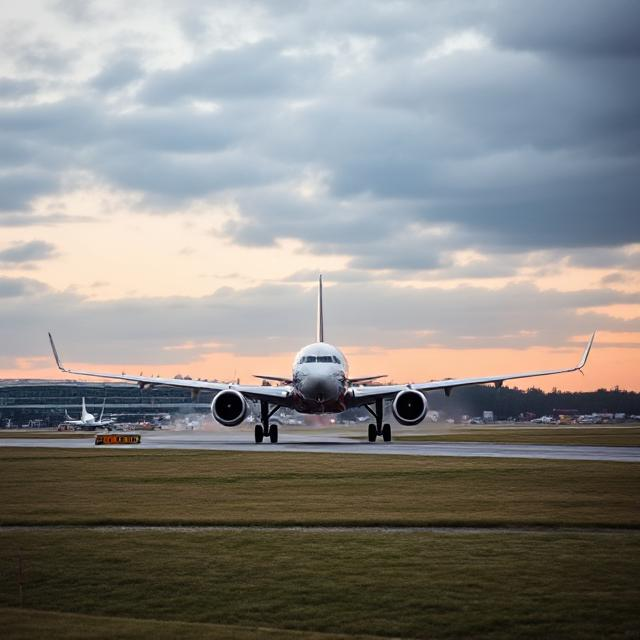Visa Stock Analysis: Is Visa a Strong Opportunity Ahead of Q4 Earnings?
$325.48
28 Jan 2026, 19:25


The UK government has officially backed the Gatwick Airport expansion with a second runway, provided that noise pollution reduction measures are put in place. Transport Secretary Heidi Alexander stated she is "minded to approve" the project, though it still requires planning permission.
Gatwick Airport plans to move its northern runway, currently used only for taxiing, into full operation by the end of the decade. The £2.2 billion expansion is set to be funded through private investment.
If approved, construction would begin immediately. However, Gatwick must address several conditions, including noise mitigation strategies and increasing public transport accessibility, before a final decision is made in October. The airport has until 24 April to submit its response.
Gatwick's Chief Executive, Stewart Wingate, welcomed the announcement, stating that the government has "outlined a clear pathway to full approval later in the year" and that the airport would "engage fully" in the process.
The expansion aligns with the government’s economic growth strategy, boosting UK aviation industry capacity. Chancellor Rachel Reeves recently supported a third runway at Heathrow, signaling a wider push for increased airport infrastructure development.
Gatwick, Europe’s busiest single-runway airport, handled over 40 million passengers last year. A second runway could increase departures by 50,000 annually by the end of the 2030s, with 30,000 flights departing from the proposed northern runway.
According to Bronwen Jones, Gatwick’s development director, the second runway would allow for new airline routes, increased frequencies, and better flight options for passengers.
Unlike Heathrow Airport, which focuses on international freight traffic, Gatwick’s expansion is designed to increase capacity for holidaymakers and business travelers, particularly on short-haul routes.
Despite government support, the expansion faces strong public opposition from MPs, local authorities, residents, and environmental activists. Critics argue that increased air traffic will drive up noise pollution and carbon emissions.
Sally Pavey, chair of Communities Against Gatwick Noise Emissions (CAGNE), warns of "uncontrollable noise, road congestion, declining air quality, and significant climate impact." The group has threatened legal action through a judicial review if the expansion proceeds.
Greenpeace UK policy director Douglas Parr dismissed claims that the project would boost economic growth, stating, "The only thing it’s set to boost is air pollution, noise, and climate emissions."
The UK’s independent Climate Change Committee (UKCCC) recently advised that the aviation sector must cut emissions by 17% from 2003 levels to meet national climate goals. While sustainable aviation fuels (SAF) and carbon capture technologies could help, experts argue that the best way to reduce aviation's impact is by slowing the demand for air travel.
At current trends, UK flight demand is projected to grow by 53% by 2040, far exceeding the UKCCC’s recommended 16% growth cap.
While unions like Unite support the expansion, they stress the need for high-quality, unionized jobs and improved working conditions.
In contrast, economists from the New Economics Foundation argue that the expansion will not create new jobs but instead shift employment opportunities from other regions.
The government will make its final decision on the Gatwick second runway in October 2024. In the meantime, Gatwick Airport must demonstrate how it will mitigate noise pollution, environmental impact, and public transport challenges.
The debate over whether the Gatwick Airport expansion will provide long-term economic benefits or exacerbate climate concerns remains ongoing.
Source: bbc.co.uk, ChatGpt